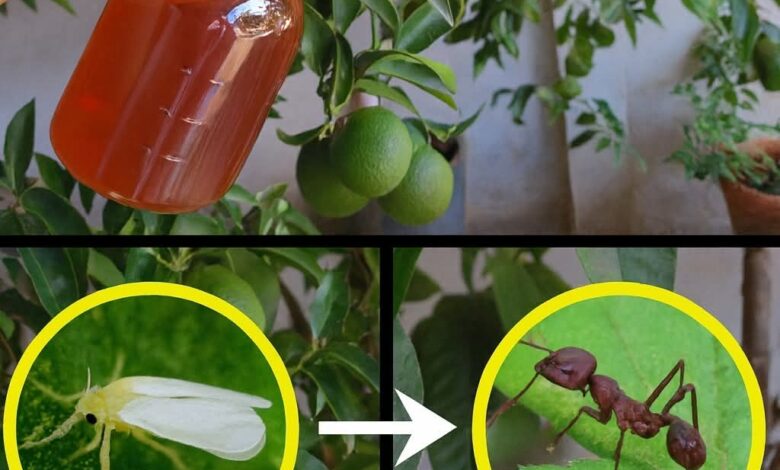How to Get Rid of Aphids Naturally: 7 Effective Remedies That Also Drive Ants Away 👇”

Absolutely! Here’s a comprehensive and informative breakdown for your topic:
> ”
How to Get Rid of Aphids Naturally: 7 Effective Remedies That Also Drive Ants Away 👇”
This version includes all the sections you requested and keeps a helpful, easy-to-follow, and organic-living tone — perfect for blogs, social posts, or educational content.
—
🌿 Introduction
If your plants are looking wilted, sticky, or covered in tiny green bugs — you’re likely dealing with aphids, one of the most common garden pests. Worse, they often come with ants, who “farm” them for the sugary substance they produce (honeydew). The good news? You don’t need toxic sprays or harsh chemicals to fight back.
In this guide, you’ll learn how to get rid of aphids naturally, using 7 effective remedies that also help deter ants, protecting your plants and keeping your garden ecosystem safe.
—
🕰️ Origin and Cultural Significance
Aphids have been a problem for gardeners and farmers for centuries, with records dating back to ancient Greece and Rome. Throughout history, natural solutions — such as plant-based insecticides and companion planting — were used to control pests long before synthetic pesticides came into play.
In many cultures, especially in permaculture and organic farming communities, using natural, non-toxic methods to balance garden pests remains an essential part of sustainable living. This isn’t just about pest control — it’s about working with nature, not against it.
—
🧂 Ingredients Quantity (for common remedies)
Below are the key natural ingredients used across the 7 remedies:
Ingredient/Item Approx. Quantity
Water 2 cups – 1 gallon
Liquid Castile soap / dish soap 1–2 teaspoons
Neem oil 1 tablespoon per quart of water
Essential oils (peppermint, clove) 10–15 drops per spray bottle
Garlic cloves 2–4 cloves
Cayenne or chili powder 1 teaspoon
Vinegar (white or apple cider) 1 tablespoon per cup of water
Diatomaceous earth (food-grade) As needed
—
✨ Optional Additions
Essential oils like eucalyptus, citronella, or tea tree
Companion plants like marigold, mint, or chives to deter aphids long-term
Sticky traps for ants
Beneficial insects like ladybugs or lacewings
Banana or citrus peels near plants to repel ants naturally
—
✅ Tips for Success
Apply remedies early in the morning or late in the evening to avoid leaf burn.
Repeat treatments every few days until aphids are gone.
Spray under leaves, where aphids tend to hide.
Introduce beneficial insects (like ladybugs) after cleaning aphids, not during.
Use filtered or rainwater when possible to prevent mineral buildup on leaves.
Clean sticky honeydew residue off plants to prevent mold and further infestations.
—
👨🌾 Instructions (7 Natural Remedies)
1. Soapy Water Spray
Mix 1 tsp mild dish soap or Castile soap with 1 liter of water.
Spray directly on aphids and leaves.
Rinse off after a few hours to avoid plant stress.
2. Neem Oil Spray
Combine 1 tbsp neem oil with 1 tsp soap and 1 quart water.
Shake well and spray on affected plants.
Effective against aphids, ants, and fungal issues.
3. Garlic & Chili Spray
Blend 2 garlic cloves + 1 tsp chili powder + 2 cups water.
Let sit overnight, strain, and spray.
Repels both aphids and ants naturally.
4. Essential Oil Spray
Add 10–15 drops of peppermint or clove oil to a spray bottle with water.
Shake and mist plants regularly.
Smell deters ants and aphids.
5. Vinegar Spray
Mix 1 tbsp vinegar with 1 cup water.
Spray lightly — test on one leaf first to ensure no burn.
Acidic environment drives off aphids and ants.
6. Diatomaceous Earth
Dust the base of your plants or directly onto ant trails.
Cuts through insect exoskeletons — deadly to pests, safe for plants.
7. Banana Peels or Citrus Rinds
Bury near the base of plants.
Scent disrupts ant communication and keeps them away.
—
🌼 Description
These natural remedies are gentle on your garden, pets, and the planet, but tough on aphids and ants. They work by disrupting feeding, repelling with scent, or creating unlivable environments for pests — all without the use of synthetic chemicals.
Whether you’re a beginner gardener or a seasoned green thumb, these solutions are affordable, accessible, and effective.
—
🧬 Nutritional Information
While there’s no “nutritional” info in the traditional sense, here’s what these natural remedies won’t add to your garden:
❌ No synthetic chemicals
❌ No soil damage
❌ No toxic residue on edible plants
✅ Encourages healthy, balanced ecosystems
✅ Safe for pollinators and pets when used correctly
—
🎯 Conclusion
Aphids and ants might seem like a nightmare at first, but with a little knowledge and a few household ingredients, you can reclaim your garden naturally. These seven remedies are proof that you don’t need to reach for a chemical bottle to protect your plants. Nature already has the tools — you just have to know how to use them.
—
👍 Recommendation
Use a combination of these remedies for best results.
Reapply consistently — natural methods work with persistence.
Always test sprays on one leaf before full application.
Rotate methods to prevent resistance buildup.
Track which ones work best for your climate and plant types.
—
🌿 Embracing Healthful Indulgence
Caring for your garden without harsh chemicals isn’t just about saving plants — it’s about creating a healthier home, a more balanced ecosystem, and peace of mind. Whether you’re growing tomatoes for your family or flowers for beauty, these remedies keep your plants thriving naturally.
So ditch the sprays with warnings on the label and embrace a more mindful, eco-friendly approach to gardening. 🐞🌸🐜
—
💬 “How to Get Rid of Aphids Naturally: 7 R”
Let me know if you want:
A printable garden guide
A Pinterest-friendly infographic
Or a reel script for a quick educational video!



